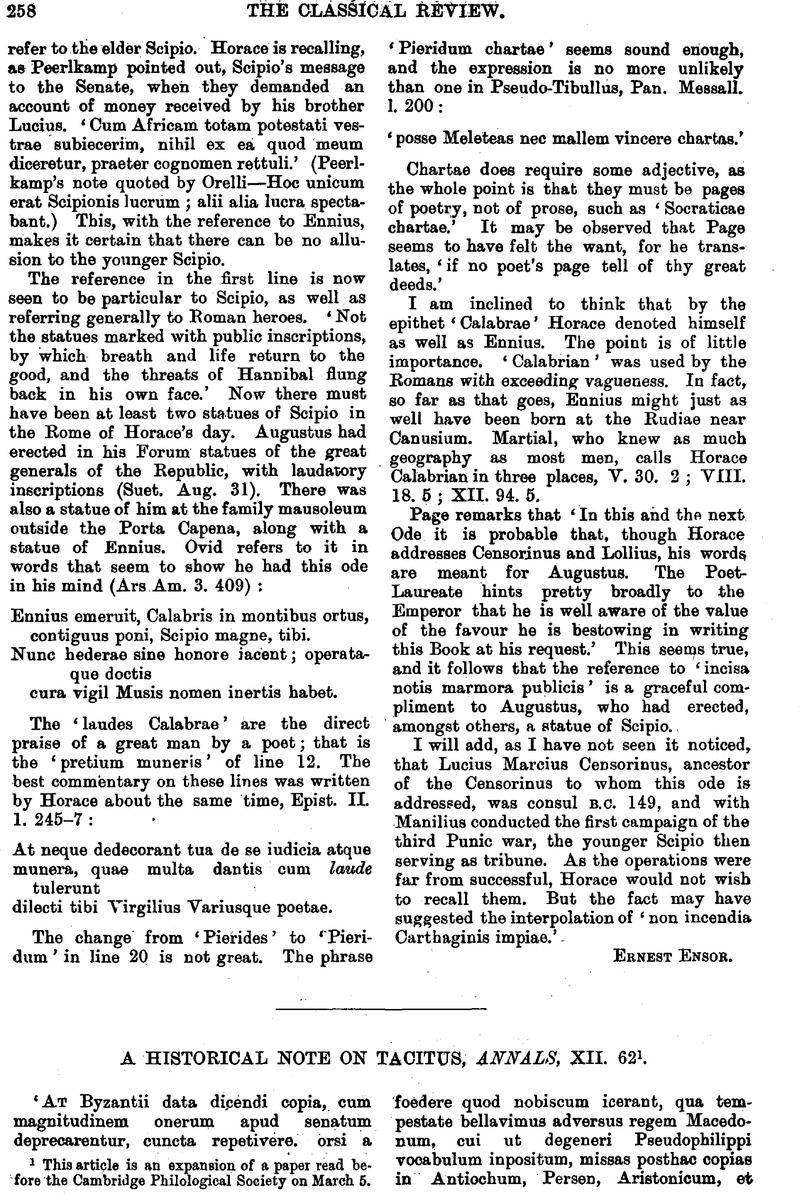No CrossRef data available.
Published online by Cambridge University Press: 27 October 2009

page 259 note 1 See Bevan, E. R., The House of Seleucm, ii. p. 107, n. 6Google Scholar. Mommsen says that ‘extensive privileges were granted to the Byzantines,’ by Antiochus with a view to his war with Rome (History of Rome, Engl. transl., ii. p. 450). I cannot find the evidence for this.
page 258 note 2 See Knbitschek's article on Byzantion in Pauly-Wissowa, iii. 1138, where references are given for the events mentioned above.
page 258 note 3 His claim that he was the son of Perseus.was false, though Pausanias, whose work was written fifty or sixty years later than the Annals, admits it (vii. 13. 1: ![]() .
.
page 260 note 1 The language of Floras, who wrote not long after Tacitus, is an exception which proves the rule: he calls Andriscus ‘ille imaginarius et scenicus rex’ (ii. 14).
page 260 note 2 E.g. by Furneaux: ‘as one meanly born.”
page 260 note 3 Livy, Epit. xlix.
page 260 note 4 E.g. xv. 70: exim Annaei Lucani caedem imperat.… Senecio posthac. et Quintianus et Scaevinus non ex priore vitae mollitia, mox reliqui coninratorum periere, nullo facto dictove memorando. iii. 62: primi omnium Ephesii… proximi Magnetes,… Aphrodisienses posthac ct Stratonicenses… exim Cyprii.…
page 260 note 5 Both meanings of ‘degener’ are found in the Annals. For the original meaning see i. 40, iv. 61; for the degenerate meaning see xii. 51.